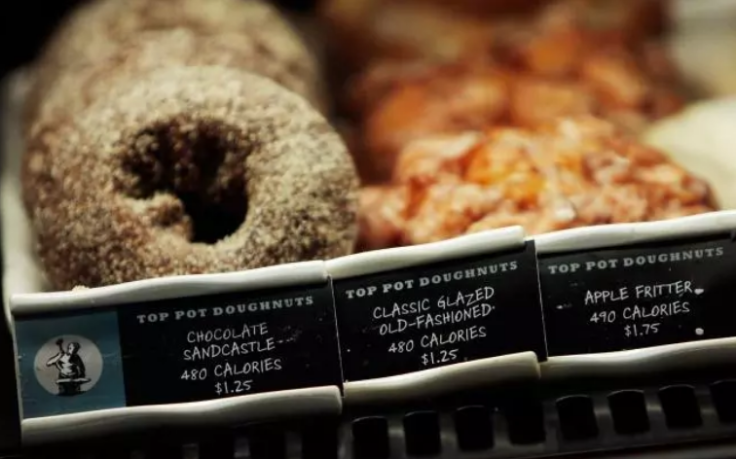Nutrition Information In Restaurant Menus Could Help Healthier Eating, Study Finds

Do you know how many calories were in that spaghetti alle vongole you feasted on the last time you went out to dinner? 570 kcal… not to mention the 180mg of sodium. If you knew this prior to placing your order would you opt instead for a more nutritious dish?
According to new evidence published in the Cochrane Library, mentioning the nutritional value of a dish in the menu can help people cut down their caloric intake. Combining information gathered from various studies, researchers concluded that people are more likely to cut down their calorie consumption by almost 12% if restaurants and cafes put nutrition labels next to their food and drink offerings.
"This evidence suggests that using nutritional labeling could help reduce calorie intake and make a useful impact as part of a wider set of measures aimed at tackling obesity," said lead author Professor Theresa Marteau, Director of the Behaviour and Health Research Unit at the University of Cambridge, UK. "There is no 'magic bullet' to solve the obesity problem, so while calorie labeling may help, other measures to reduce calorie intake are also needed."
For the research, they considered 28 studies in which the labels had to include information on the nutritional or calorie content of the food or drink. This did not include menus that only featured logos or interpretative colors to indicate healthier and unhealthier foods.
Eleven of the investigations attempted to understand how nutritional labeling impacted purchasing while the other 17 assessed how consumption was affected by labeling.
Combining results of three studies conducted in artificial or laboratory settings showed that such labels could reduce calories consumed by about 12% per meal. The authors have acknowledged that the quality of the evidence is low and there is still some uncertainty around this effect. They suggested that additional studies be conducted to recognize the impact with more precision.
Currently, the US is working to instate an Obama-era policy which will make it mandatory for restaurants and other food outlets with 20 or more locations to mention their dishes’ calorie count. The new rule is expected to come into action by May 2018. In the UK, around 70% of the restaurants and high-street coffee shops voluntarily mention the calories in their offerings.
"Some outlets are already providing calorie information to help customers make informed choices about what to purchase,” added study author Professor Susan Jebb of the University of Oxford. “This review should provide policymakers with the confidence to introduce measures to encourage or even require calorie labeling on menus and next to food and non-alcoholic drinks in coffee shops, cafeterias and restaurants."
People typically end up consuming 20% to 40% more calories when they eat out. This is especially problematic in the US, which is already facing an obesity epidemic. Professor Ian Caterson, President of the World Obesity Federation hopes implementing measures such as nutrition labeling in menus can help lighten the weighing scale. "Energy labeling has been shown to be effective: people see it and read it and there is a resulting decrease in calories purchased. This is very useful to know,” he said, adding that it needs to be combined with other measures to tackle the obesity problem.
This article originally appeared in Medical Daily.











